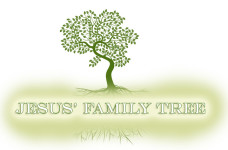As shocking as this may sound to some, there are those who think the Bible is boring and unexciting to read. It is as though whenever someone begins to break out God’s written Word, they mentally prepare to cozy up and take a nap. I don’t know what we have done to take one of the most extreme life adventure books and somehow convince myriads of people that it is uneventful and irrelevant. Is it a spiritual problem or a practica l one? Are we spiritually inept as a culture, dysfunctional discerners of what is important? Or are we terrible communicators, having found ways to reduce the narratives to its lowest possible effect?
l one? Are we spiritually inept as a culture, dysfunctional discerners of what is important? Or are we terrible communicators, having found ways to reduce the narratives to its lowest possible effect?
While not accusing our Hollywood screenwriters of outright plagiarism, I really think that most people don’t realize how seemingly every major plotline from top blockbuster films correlates shockingly close to Bible narratives. Sometimes writers and producers will actually admit that they stole their ideas right out of the Biblical text. I remember watching an interview with George Lucas of Star Wars when he made this confession.
It is fun for me to relate the stories of heroism, battles between good and evil, glorious triumphs, agonies in defeat, and the rise and fall of individuals and kingdoms, and real life application for us today, for this is the fodder of every great book and movie. But there is at least one area where even Bible students are sometimes persuaded of its tedium: the genealogies. But I am convinced this is because readers often miss the point and fail to see how these fit everything together.
Every great story starts with the setting, background, and introduction to the main characters in order to set the enthusiast inside the situation. Genealogies do the same thing. It isn’t that the Bible dulls everything into a painfully repetitious rendition of “who begot who” in order to send its readers running away screaming in torment. It is our ignorance of the people mentioned and the significance of their lives that causes us to often presume in error that reading a family tree is akin to being tied to a water board and tortured.
Imagine for a moment someone wanted to have a serious conversation with you about our own American history but failed to bring in significant figures such as our first president, George Washington, or major events like the Civil War. You would be unimpressed with the discussion, and further, the credibility of the conversation would soon falter. Is it possible to give a presentation about modern technology without at least dealing with some noteworthy figures such as Steven Jobs, or Bill Gates? And, interestingly, since you know each of these individuals by reputation and impact, there is already a context for my message without my need to explain. In similar ways, genealogies are meaningful when we are familiar with the people in the line and recognize that there is a point in going through the laborious accounting.
The next time I write to you here, I want to illustrate this and shine a light on one of the most misunderstood passages in the New Testament, the introduction to the book of Matthew. But for now, I want to close with this thought. Your story is being written each day by the decisions you make and the path you choose, whether of God or of self. Someday, someone will try to encapsulate your life in a short epitaph that fits into a few paragraphs. What will they write? The narrative you write with your life choices should be one worth telling. When someone mentions your name, will it be found among the list of those who put their eternity in the hands of Jesus or among the list of those who select any alternative one can find? What living testimony will be implied at the mention of your name?
